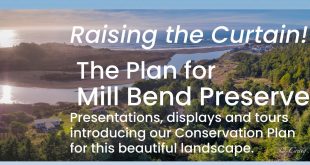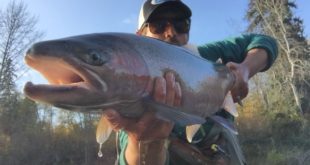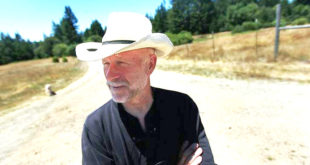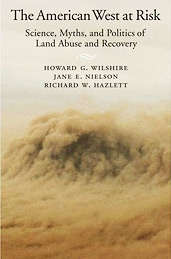 The American West at Risk summarizes the dominant human-generated environmental challenges in the 11 contiguous arid western United States – America’s legendary, even mythical, frontier.
The American West at Risk summarizes the dominant human-generated environmental challenges in the 11 contiguous arid western United States – America’s legendary, even mythical, frontier.
When discovered by European explorers and later settlers, the west boasted rich soils, bountiful fisheries, immense, dense forests, sparkling streams, untapped ore deposits, and oil bonanzas. It now faces depletion of many of these resources, and potentially serious threats to its few “renewable” resources.
The importance of this story is that preserving lands has a central role for protecting air and water quality, and water supplies – and all support a healthy living environment. The idea that all life on earth is connected in a great chain of being, and that all life is connected to the physical earth in many obvious and subtle ways, is not some new-age fad, it is scientifically demonstrable.
An understanding of earth processes, and the significance of their biological connections, is critical in shaping societal values so that national land use policies will conserve the earth and avoid the worst impacts of natural processes. These connections inevitably lead science into the murkier realms of political controversy and bureaucratic stasis.
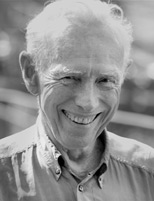 Dr. Howard G. Wilshire earned a BS degree from the University of Oklahoma and a Ph.D. from the University of California, Berkeley in geology. He joined the U.S. Geological Survey as a research geologist after 5 years of teaching geology at Sydney University and research at the Australian National University.
Dr. Howard G. Wilshire earned a BS degree from the University of Oklahoma and a Ph.D. from the University of California, Berkeley in geology. He joined the U.S. Geological Survey as a research geologist after 5 years of teaching geology at Sydney University and research at the Australian National University.
In his 35-year USGS career his work included geologic mapping, Apollo astronaut training and lunar research, studies of processes operating in the earth’s upper mantle and lower crust, and broad-ranging studies on geologic processes at the land surface. His surface process studies focused on environmental impacts of human activities in arid lands, including off-road vehicular recreation, radioactive waste disposal, energy developments, military activities, utility corridor construction, grazing, mining, road-building, earth art, waste disposal, centralized wind and solar energy developments, and other subjects. Dr. Wilshire is Board Chairman of Public Employees for Environmental Responsibility (PEER), a national environmental organization.
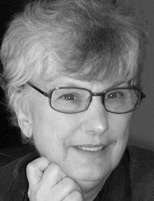 Dr. Jane E. Nielson earned three degrees in geology and geochemistry. After receiving her Ph.D. from Stanford University in 1974, she taught Environmental Geology and other courses at California State University, Hayward, then worked for the U.S. Geological Survey as a field and research geologist, specializing in many aspects of Mojave Desert geology.
Dr. Jane E. Nielson earned three degrees in geology and geochemistry. After receiving her Ph.D. from Stanford University in 1974, she taught Environmental Geology and other courses at California State University, Hayward, then worked for the U.S. Geological Survey as a field and research geologist, specializing in many aspects of Mojave Desert geology.
After retiring from the USGS in 1997, Dr. Nielson taught geology, petrology, geochemistry and environmental geology courses at Pomona College, Claremont, California, and has lectured on geological and environmental topics in her home area of Sonoma County, California. She is a co-founder of the Sebastopol Water Information Group and serves on the board of directors for the OWL Foundation, which researchs and disseminates information on water development and land conservation issues in Sonoma County, and advocates for sustainable local, statewide, and national land and water policies.
Geologists & authors Jane Nielson and Howard Wilshire discussed the issues presented in their new book on Saturday, July 19, 2008 at Four-Eyed Frog Books in Gualala, CA, with an enthusiastic audience of about two dozen.
The event was presented by Four-Eyed Frog Books
and Friends of the Gualala River.
 Friends of Gualala River Protecting the Gualala River watershed and the species living within it
Friends of Gualala River Protecting the Gualala River watershed and the species living within it
